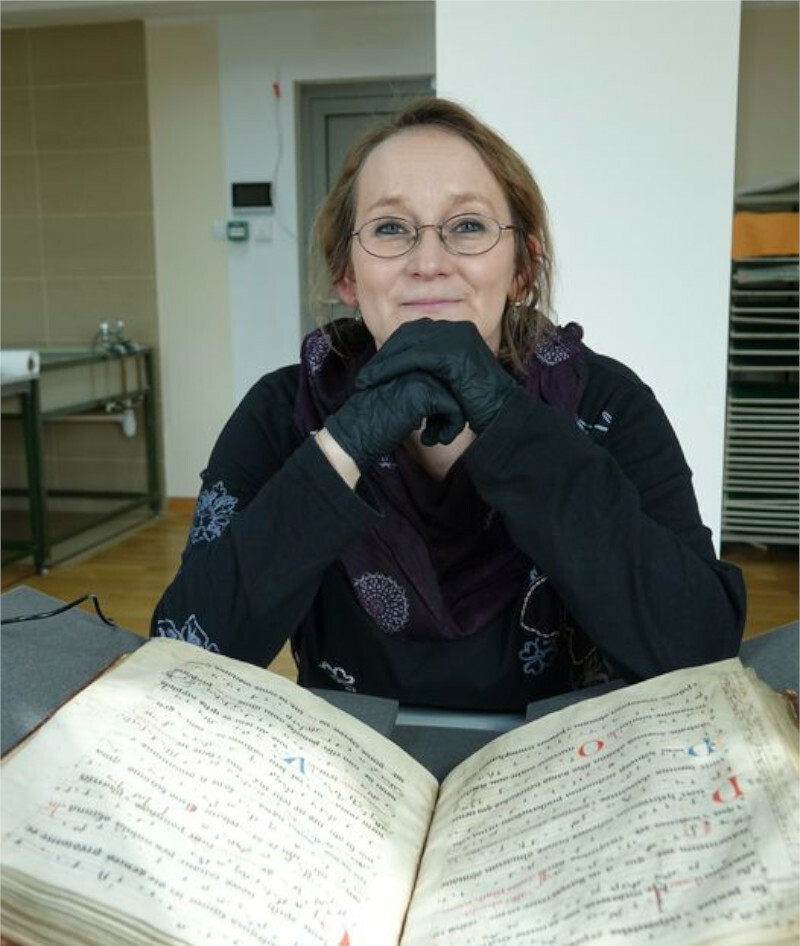
Historyk sztuki, od wielu lat związana z Wydziałem Sztuk Pięknych UMK w Toruniu. Prowadzi badania nad sztuką dawnego państwa zakonnego w Prusach w kontekście jej europejskich powiązań oraz nad funkcją dzieł sztuki w liturgii, kulcie i pobożności; współpracuje z instytucjami muzealnymi. Jest autorką lub współautorką sześciu monografii i redaktorem naukowym kilkunastu tomów wieloautorskich, w tym tomu projektowego: Rzeźba kamienna czeskiego stylu pięknego z lat 1380–1400 na terenie państwa zakonu krzyżackiego w Prusach….(2022). Zajmuje się także książką średniowieczną w ujęciu interdyscyplinarnym: jest m.in. współautorką katalogu kodeksów średniowiecznych BUMK w Toruniu (2016), a także inicjatorką cyklu konferencyjnego Textus et pictura. Pełni funkcję przewodniczącej Rady Dyscypliny Nauki o Sztuce UMK oraz dyrektora Instytutu Historii Sztuki i Dziedzictwa Kulturowego UMK.
VIII KONGRES MEDIEWISTÓW POLSKICH - GNIEZNO 2025
Coordinator
List of papers
The Work of Art, the Myth of the Beginning and Historical Memory. On the Consequences of Certain Traditions for the Art History Research
The custom of attributing special symbolic values to certain historical objects, making them attributes of power and 'relics of the past' in local founding myths, has been a phenomenon in Europe since the late modern period. In Poland, the conditions for attributing historical significance to works of art by linking them to the persons of certain rulers were created in the 19th c. in connection with the struggle for the survival of national identity and historical memory; this trend of thought also marked the later period. The paper will attempt to identify the circumstances under which certain medieval artworks began their 'new life' as bearers of national identity and focus on the scientific consequences of this way of thinking, as a result of which history and art history have long struggled – and in some cases still struggle – with the myth of the beginning, which hinders a modern view of these objects as historical documents and the reconstruction of their real contexts.
The Mathilda Codex as a Material Object – Implications of Expertise for Historical Research
There is no doubt about the undeniable importance of the so-called Matilda Codex in literature. The copy of the Liber officiorum, kept in Düsseldorf and thoroughly studied by a team led by Prof. Brygida Kürbis, is considered to be a unique document of the politics and culture of the 11th century, associated with Mieszko II. The lost miniature, which shows Matilda of Swabia as the donor and the enthroned Polish ruler, became part of the permanent repertoire of iconography in early Piast Poland, reproduced in every history manual. However, the aspects related to the materiality of this object have not yet been fully analysed: the materials used, the care taken in its production, its artistic quality (the Liturgica Poloniae project has provided opportunities for such research). The results of the analysis will be crucial in assessing the extent to which this inconspicuous book can indeed be considered a Codex Pretiosus, a deliberate diplomatic gift to the sovereign on the occasion of his
